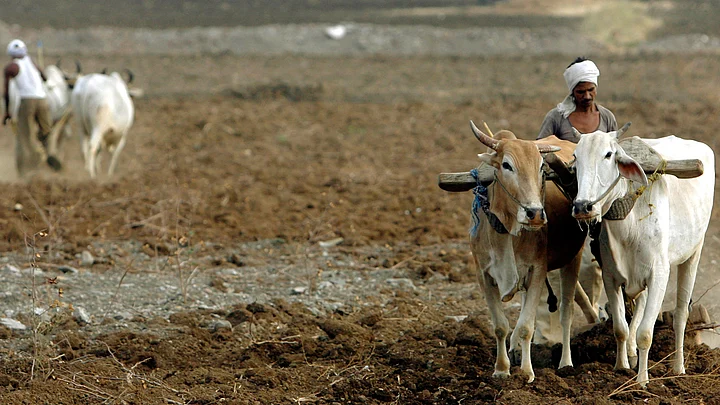The constituency of indebted farmers in Uttar Pradesh is large enough to tilt the electoral balance in the state. And the Congress may have a point in making common cause with them. But will the idea work as well as party leaders hope it will?
As reported by the Quint on 31 August, the Congress is likely to press for a farm loan waiver scheme and party Vice-President Rahul Gandhi’s ambitious 2,500-km-long Deoria to Delhi Kisan Padyatra is aimed at wooing farmers.
According to a National Sample Survey Organisation (NSSO) report, Uttar Pradesh has the maximum number of farm households, at nearly 1.8 crore, in the country. And the state is home to the highest number of indebted farm households at nearly 80 lakh. What makes this group vulnerable is the fact that nearly 18 percent of them are below the poverty line and some 21 percent do not have ration cards, depriving them of the benefits of food security schemes.
While the average ticket size of loan is Rs 27,300, the NSSO data shows that many farmers own less than 5 hectares of land but carry a far higher burden of debt.
There are a large number of farmers who own 2 to 4 hectares of land but carry debt in excess of Rs 1 lakh, according to the report. This group is more vulnerable to weather shocks and fluctuating prices of agricultural products. In case of change in any of the variables, farmers are susceptible to fall into debt trap.
Will the Poll Promise Work?
- UP is home to large number of indebted farmers.
- Many small farmers carry debt burden in excess of Rs 1 lakh.
- Many farm households do not have ration cards.
- The rise of Mandal politics has made a dent on farmers’ solidarity witnessed in the 1980s.
Political Dividend
The sheer size of indebted farmers in UP makes them an attractive category to be targeted. The fact that large number of farmers are reeling under the twin impact of rising input costs and near-static output prices — partly because of very modest rise in minimum support price (MSP) in the last few years — any promise of a debt waiver is likely to find resonance with them.
Incidentally, unlike in all previous elections, the BJP did remarkably well in rural areas in the 2014 Lok Sabha elections. One of the contributing factors was the party’s promise to farmers that they would be offered an assured return of 50 percent over the cost of production.
A modest rise in MSP in the last few years means that the promise is yet to be fulfilled. Reports from various parts of the country suggest that the farm community has not taken kindly to non-delivery of the promise. Protests by predominantly agricultural castes like Patidars, Marathas and Jats is perhaps an indication of that.
United by Occupation, Divided by Castes
Farmer leaders, however, point out that kisan solidarity witnessed during the days of Chaudhary Charan Singh, Devi Lal and Mahendra Singh Tikait broke after the implementation of the recommendations of the Mandal Commission.
As a result, the political representation of farmers has been falling in recent years. Occupational profile of the 15th and 16th Lok Sabhas illustrates this point. While in the 15th Lok Sabha, 222 members claimed to be agriculturists, the current Lok Sabha has only 39 such members.
Given the way farm politics has fragmented in recent years, it is going to be a huge challenge for Rahul Gandhi and the Congress to bring farmers under one umbrella. More so, in a state like UP which has tended to give preference to identity politics.
Little Resonance Among Marginal Farmers
While farmers with worthwhile landholdings have tended to rely on institutional finance (cooperative societies and banks), the access of marginal farmers to institutional finance is very limited.
The NSSO report says that “for the agricultural households covered in the lowest size class of land possessed (less than 0.01 ha), only about 15 percent of the outstanding loans were from institutional sources (government, co-operative society, bank)”.
For this group of indebted farmers, any promise of debt waiver will mean nothing. They need access to institutional finance and that too on favourable terms. Rahul Gandhi will have to come up with a new plan to connect with this category of farmers.
Also read:
Exclusive: Rahul Gandhi to Woo UP Farmers With Huge Debt Waiver
